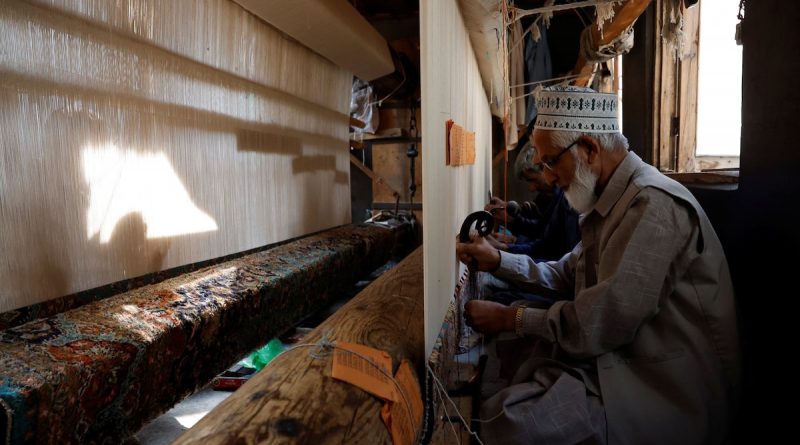Kashmir’s Carpet Weavers Seek New Markets and Opportunities Amid Trade Challenges
Srinagar – Kashmir’s handmade carpet industry is showing resilience as artisans and exporters adapt to evolving global trade conditions. Despite challenges posed by increased U.S. tariffs, many weavers are exploring new markets and innovative strategies to sustain their craft and protect traditional skills that have been passed down for generations.
The Himalayan region of Kashmir, known for its Persian-style tufted and knotted carpets, employs hundreds of thousands of artisans who continue to maintain the rich legacy of this centuries-old craft. Industry members are working closely with local authorities to diversify exports and identify new international buyers, ensuring the continuation of employment and cultural heritage for local communities.
Many carpet makers are modernizing their businesses by connecting directly with buyers through online platforms and trade networks, expanding their reach beyond traditional markets. This approach not only helps mitigate the impact of tariffs but also introduces Kashmir’s unique designs to a broader global audience, increasing demand and appreciation for the region’s handmade products.
Government initiatives have also been introduced to support the industry, offering financial incentives, training programs, and promotional opportunities to encourage weavers to innovate and stay competitive. These measures aim to strengthen the sector, preserve traditional craftsmanship, and provide artisans with sustainable livelihoods despite global economic pressures.
Artisans like Mohammed Yaqoob Bafanda are focusing on quality and niche markets, leveraging the uniqueness of their carpets to appeal to premium buyers around the world. By targeting specialized segments, local businesses are creating value-added products that can withstand international competition and maintain the legacy of Kashmir’s weaving traditions.
The industry is also exploring collaborations with designers, interior decorators, and export associations to create new product lines and improve market access. These efforts not only sustain employment but also generate fresh interest in Kashmir’s carpets, blending traditional techniques with contemporary design trends that appeal to global consumers.
Despite obstacles, local weavers remain committed to preserving the artistry and cultural significance of their work. Training the next generation of craftsmen, introducing modern tools, and adopting new business strategies are all part of a larger effort to ensure the industry thrives while maintaining its heritage.
By embracing innovation and diversification, Kashmir’s carpet industry demonstrates its ability to adapt to global challenges while continuing to provide jobs, support families, and showcase the region’s craftsmanship worldwide. The focus on resilience, creativity, and market expansion reflects a positive outlook for the future of this iconic art form.



